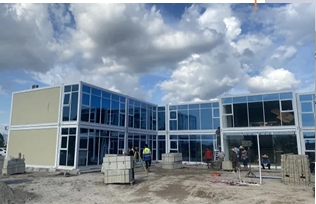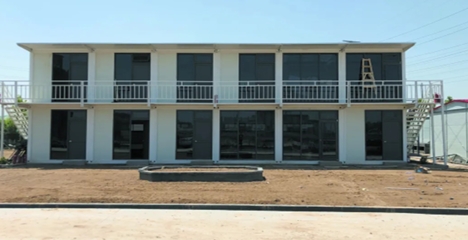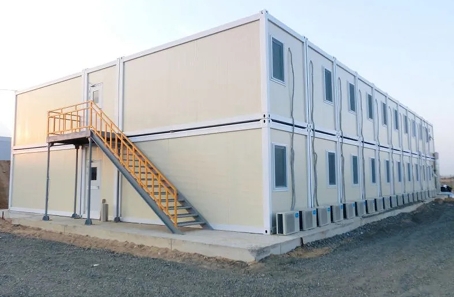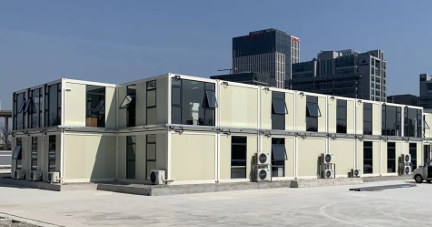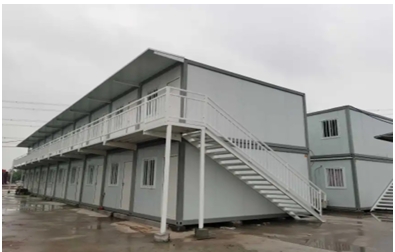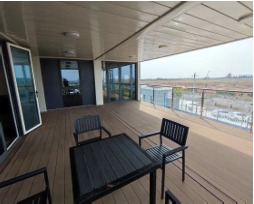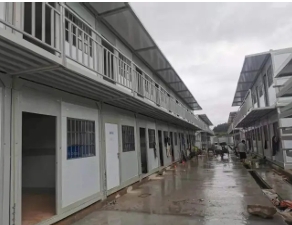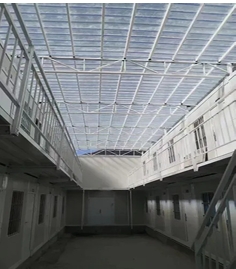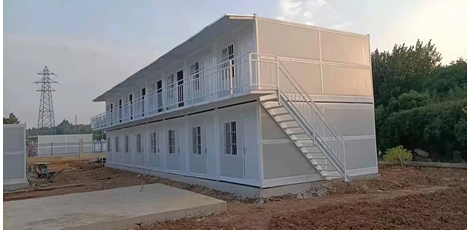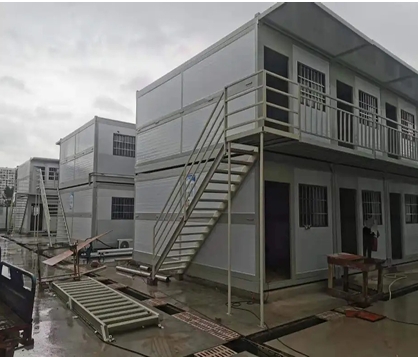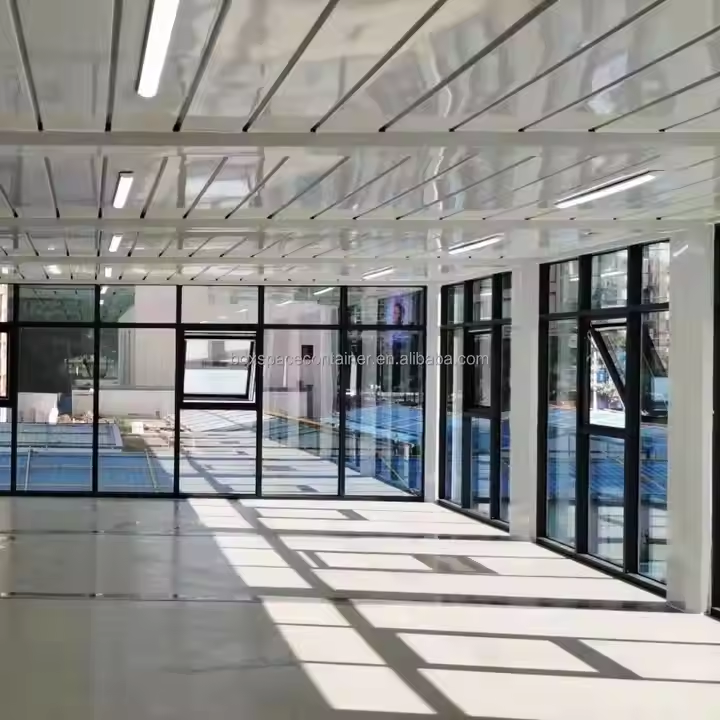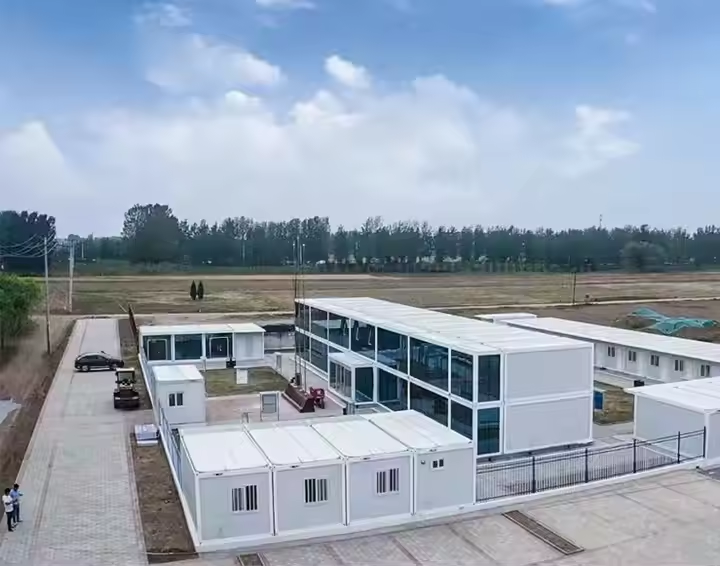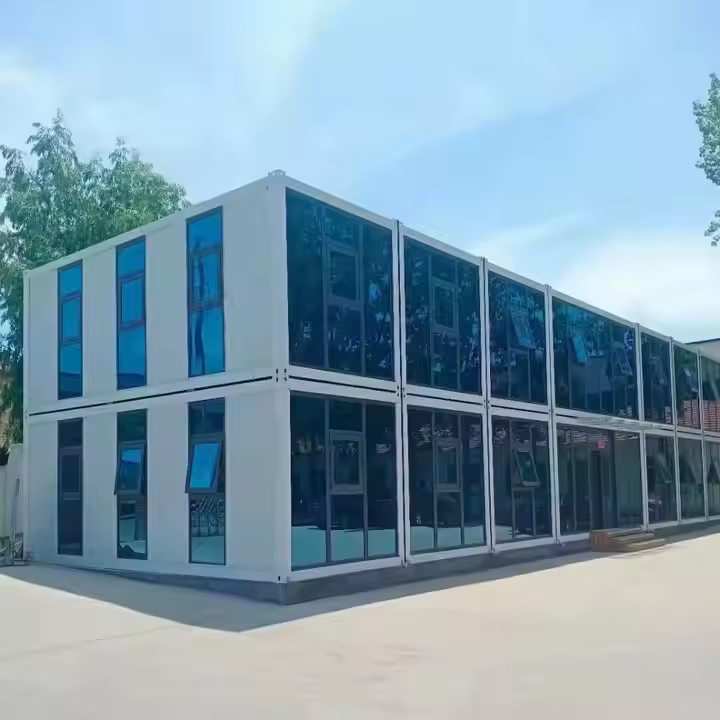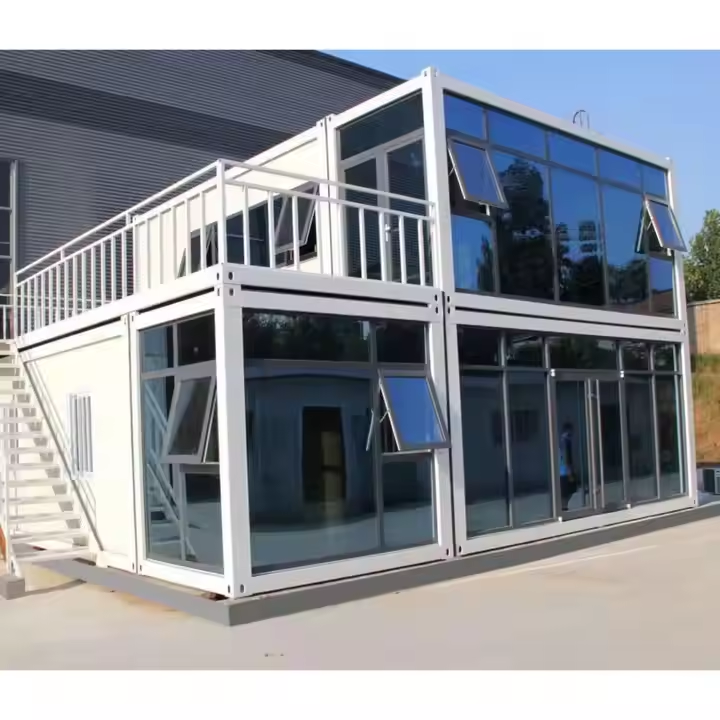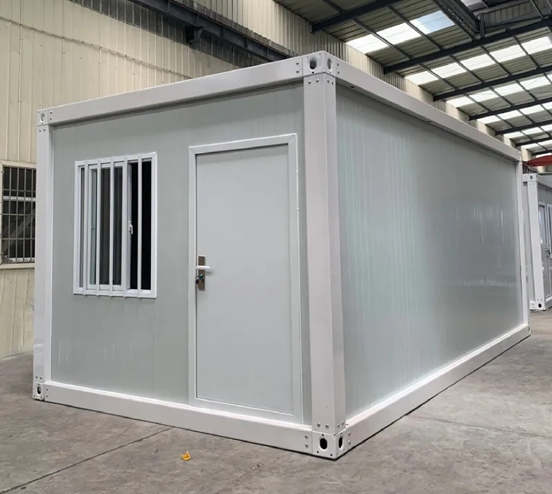Description
The Versatility of Detachable Containers: A Transformative Solution for Modern Living and Working Spaces
Detachable containers, also known as demountable or modular containers, present a revolutionary approach to building various types of spaces, including housing, offices, dormitories, and more. These fully dismountable structures offer unmatched flexibility and efficiency, making them an increasingly popular choice in today’s dynamic construction landscape.
Flexibility and Mobility
One of the standout features of detachable containers is their exceptional flexibility in transportation and assembly. Unlike traditional buildings, these containers can be easily disassembled, transported to a new location, and reassembled with minimal effort. This mobility is invaluable for businesses requiring temporary office spaces or for individuals who frequently move due to work or personal reasons.
The ability to dismantle and relocate these containers not only reduces the carbon footprint associated with building new structures but also allows for their reuse in different settings, enhancing their sustainability. This characteristic is particularly beneficial in urban areas where temporary solutions might be needed during events or as part of urban redevelopment projects.
Customization and Scalability
Detachable containers can be extensively customized to meet specific requirements. Owners can modify layouts, choose materials, and even specify the inclusion of modern amenities to ensure comfort and functionality. This level of customization makes them ideal for various applications, from compact homes to expansive office complexes.
Furthermore, the modular nature of these containers facilitates scalability. They can be stacked and interconnected to form larger buildings, making them suitable for growing businesses or temporary accommodation needs, such as student housing or emergency shelters.
Economic and Environmental Benefits
Economically, detachable containers offer a significant cost advantage over traditional construction methods. Manufactured in controlled environments, these structures require less labor and are less susceptible to delays caused by weather conditions or other external factors. The streamlined construction process not only saves time but also reduces overall building costs.
From an environmental perspective, the use of detachable containers promotes sustainability. Many of these containers are constructed using recycled materials and are designed for long-term use, minimizing waste. Their reusability and ease of relocation contribute to a reduction in the environmental impact associated with construction activities.
Applications in Housing and Beyond
In the housing sector, detachable containers provide a quick and efficient solution to the pressing need for affordable and flexible living spaces. They are particularly useful in urban areas where space is at a premium. These containers can be rapidly deployed to create functional and comfortable homes, offering a practical solution to housing shortages.
Detachable containers are also ideal for creating modular dormitories that can be expanded or reconfigured as student populations change. This adaptability makes them an excellent choice for educational institutions that need to manage fluctuating accommodation needs without committing to permanent constructions.
Office and Commercial Uses
For businesses, the adaptability of detachable containers is a key advantage. They can be configured to serve as temporary or permanent office spaces, pop-up shops, or even mobile clinics. This flexibility is crucial for sectors that require the ability to scale operations quickly or move locations in response to market demands.
Moreover, these containers can be designed to reflect corporate branding and interior design preferences, creating unique and inviting workspaces that can enhance employee satisfaction and productivity.
Detachable containers represent a transformative solution for modern living and working environments. Their ability to be fully demountable, customizable, and environmentally friendly positions them as a forward-thinking choice for individuals and businesses alike. Whether used for residential, educational, or commercial purposes, these containers offer a versatile and sustainable alternative to traditional building methods, aligning with the needs of a rapidly evolving world.
In summary, the versatility of detachable containers makes them an ideal option for anyone looking for a cost-effective, adaptable, and sustainable solution to their space needs. As the demand for more dynamic and responsive building solutions grows, detachable containers are poised to play a pivotal role in shaping the future of construction and space utilization.
